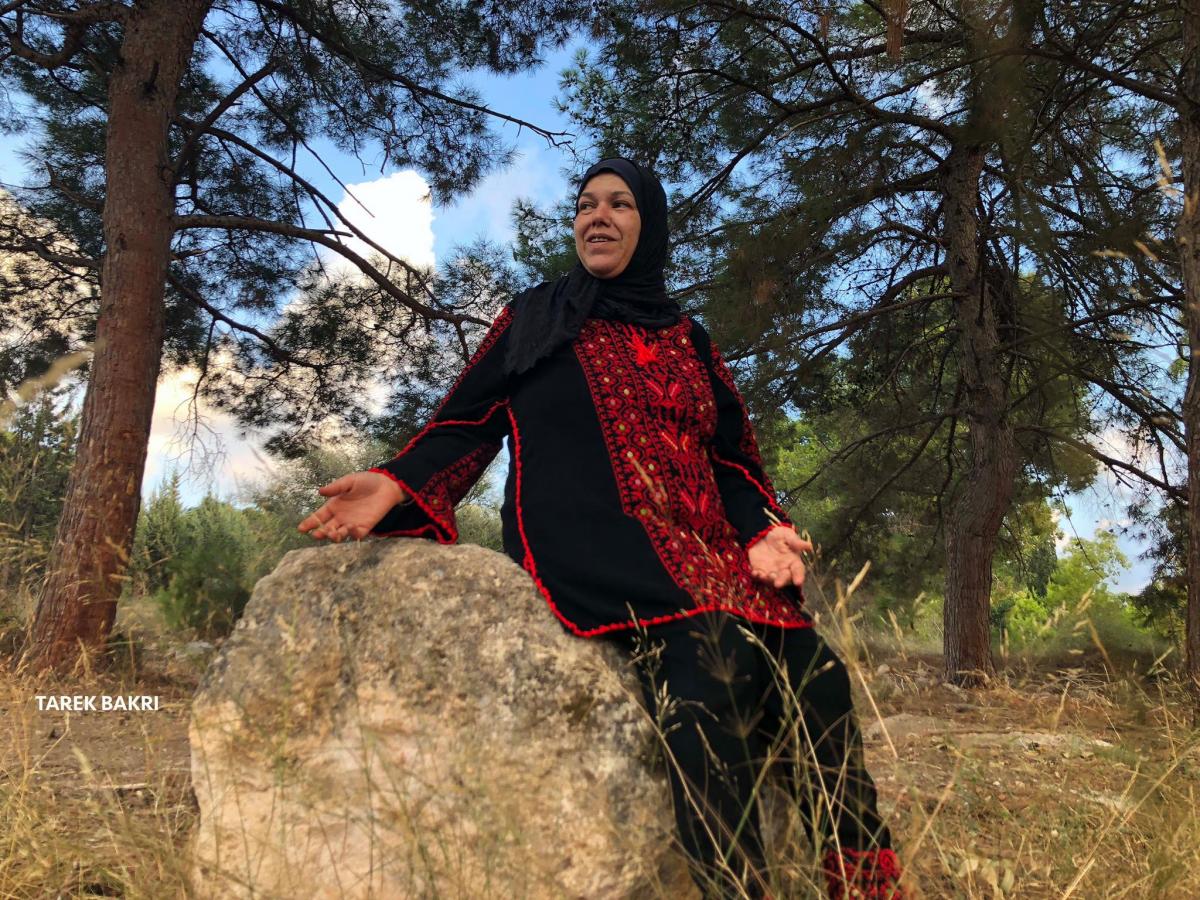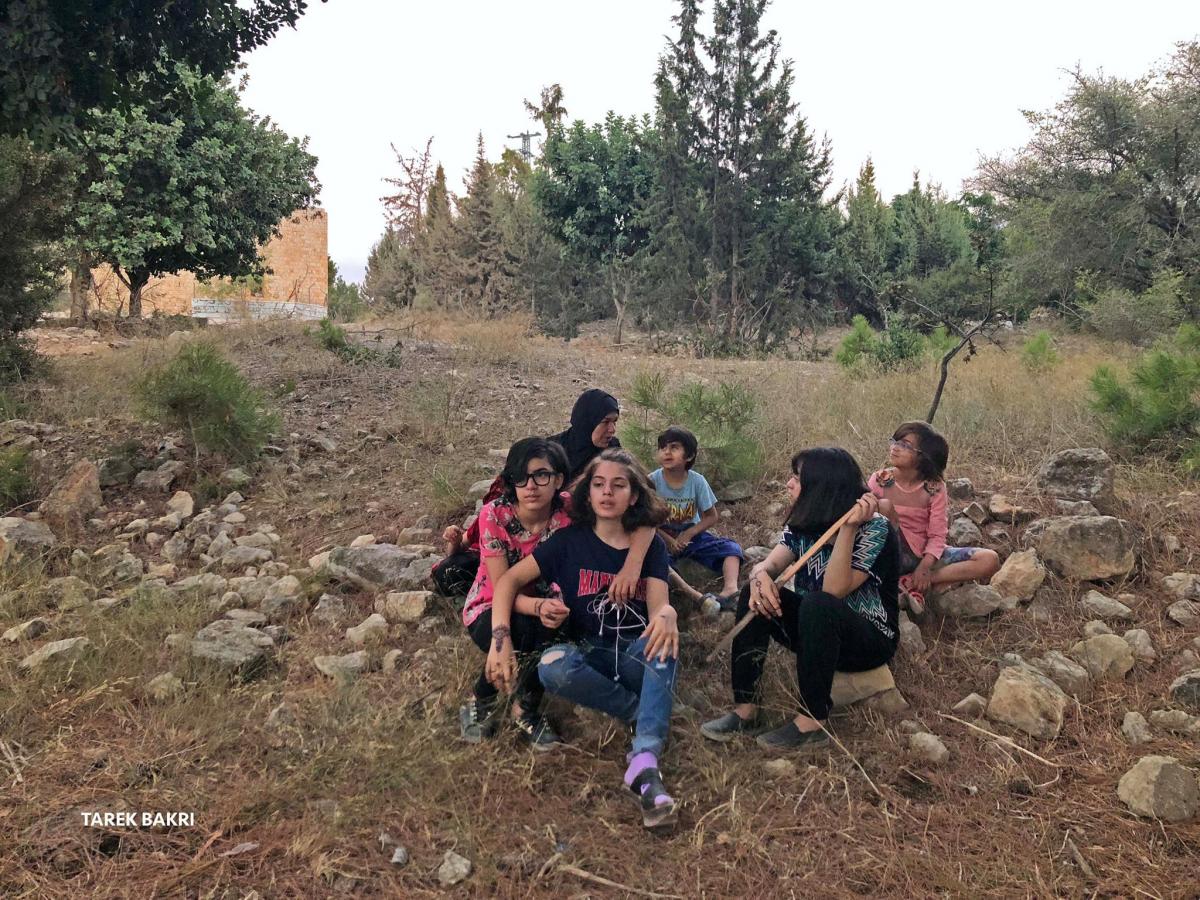
Wounded in the head, and the shrapnels lodged in his body. From there, Hussein moved and lived in diaspora in Ein Al-Hilweh Refugee Camp in Sidon, South of Lebanon.
Fadia, the daughter of Hussein al-Maqdah, born in Ein Al-Hilweh Refugee Camp but currently holding a foreign passport contacted me after the video of Akka’s bride went viral.
Fadia told me that she wanted to come to Palestine for the first time with her six children to return to her village Al-Ghabisiyya in the north-east of Acre and try to locate her family’s house.

We headed to Al-Ghabisiyya, which came under the massive attack of the Haganah before the end of the British mandate over Palestine and that aimed at occupying all coastal villages from Acre up north until the borders with Lebanon.
Mr. Dauod Bader and Mr. Khalil Khalaf Allah received us at the village entrance. The two gentlemen were born in Al-Ghabisiyya and know its people and demolished houses by heart.
Daoud Bader ‘Abu Bader’ was 6 years old back when the Haganah attacked their village on 21 May 1948. Following the attack, Daoud’s family got dispersed; he has a sister and a brother who got displaced and relocated to Lebanon and whom he hasn’t seen ever since. The rest of the family remained in Palestine. 
Khalil Khalaf Allah ‘Abu Ghazi’, was a young man whose grandmother Fatima Al-Sitti fell as a martyr after being shot at her house.
We all walked between the cactus trees and the rubbles of houses. On our way we came across a banner that read ‘Al-Ghabasiyya welcomes you’. The sign was hung a day before our arrival in an event organized in portrayal of return by the ‘Association for the Defence of the Rights of the Internally Displaced (ADRID)’.
We kept on walking until we reached the mosque… The only construction that still existed in the village, even though partially demolished and attacked a number of times.
Abu Ghazi got out a big map that showed a structural sketch and layout of the village. All houses were numbered and in the bottom of the map was written the names of the owners.
‘Follow me daughter. Your house number is 51…’ said Abu Ghazi.
We arrived to the house, which has turned into a pile of stones. Fadia had her six children sit on top of the rubble and hugged them tightly. She got a photo of her father out and kissed it. She did not cry nor did she lament anything. She remained strong and started telling them- all fully attentive- what her father had told her about Al-Ghabisiyya, life back then, the story of displacement, the refugee camp and the invasion of Lebanon in 1982.
She took as much as she could from the soil where they were sitting and went back to put it on her father’s grave in diaspora.

